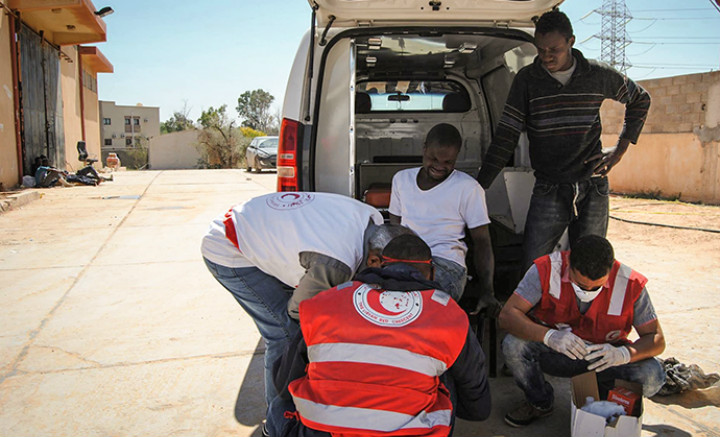Time to consider refugee protection in partnerships with third countries
On World Refugee Day and just before the European Council, the Red Cross EU Office calls on the EU and its Member States to assess the impact of the Partnership Framework approach on the right to seek and enjoy asylum.
The Migration Partnership Framework, which links migration policy measures with EU financial commitments, was adopted one year ago to enhance cooperation with third countries of origin and transit. Saving lives is its first aim. However, in reality the partnership has so far largely focused on preventing irregular migration by facilitating return measures and reinforcing border controls.
“Refugee protection is a legal obligation for the EU. Current efforts to involve third countries in migration management must not undermine the right to asylum,” states Denis Haveaux, Director of the Red Cross EU Office. “We appeal to the EU to articulate its strategic relations and partnerships with third countries around considerations related to refugee protection.”
Following perceived successful cooperation with Turkey, the EU seeks to strengthen its relationships with several other priority countries of origin and transit. Worryingly, some of the States identified for potential partnerships have governments with questionable human rights records. Furthermore, most of the cooperation agreements do not mention human rights and refugee protection safeguards.
While Afghans remain in the top five nationalities of first-time asylum applicants in the EU, return and readmission have become key priorities in EU-Afghanistan relations. By emphasising the return of failed asylum seekers, the EU risks violating fundamental human rights, including the right to non-refoulement. It also increases the likelihood of migrants being sent back to unstable countries with protection gaps and limited capacities to guarantee the safety of returnees.

As the last stepping stone for the majority of migrants on their way to Europe, Libya is seen as a key partner for the EU to stop irregular migration. Through a combination of strict border controls and funding for migration management activities, the EU seeks to limit arrivals to its territory, and increase returns from Libya.
There are currently many people stranded in Libya, with limited or no access to basic services such as healthcare. “These people are vulnerable to becoming victims of arbitrary and indefinite detention, and are at risk torture and ill-treatment,” Mr Haveaux reminds us. “By excessively prioritising border management, cooperation between the EU and Libya fails to properly acknowledge the dramatic humanitarian situation of migrants in both Libya and the Mediterranean,” he underlines.
The EU has the potential to play an instrumental role in advancing refugee protection through partnerships with third countries. “The EU and its Member States could contribute more to tackling the protection needs of refugees in regions of origin,” stresses Mr Haveaux. It is critical for the EU and its Member States to continue supporting third countries through humanitarian and development assistance programmes.
A comprehensive migration policy also urgently requires setting up safe legal routes to protection in the EU. To create a durable solution for refugees in protracted situations, EU Member States should expand and broaden the scope of their resettlement programmes. “Resettlement must remain a tool within humanitarian objectives, a tool to provide vulnerable refugees with protection. It should never be made conditional upon third country cooperation in EU migration management priorities,” concludes Mr Haveaux.
More information:
Read our Joint Recommendations on a Union Resettlement Framework.
Read our recommendations on Reforming the Common European Asylum System in a Spirit of Humanity and Solidarity.
Read our recommendations on Protecting the Dignity and Rights of Migrants in an Irregular Situation.
For media inquiries, please contact Eva Oyón on: eva.oyon@redcross.eu or +32 2 235 09 22

